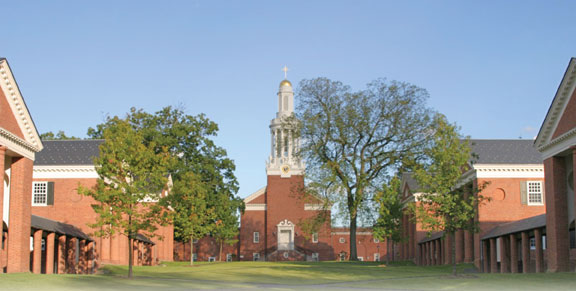
Several years ago, students at Berkeley Divinity School at Yale asked me, as dean, for some clearer articulation of how to navigate spiritually and academically within a richly complex educational environment.
And complex it certainly is. Berkeley is the only Episcopal seminary affiliated with an ecumenical divinity school in a secular research university. Its students are admitted by Yale and receive university degrees, yet are also able to train specifically for ministry in the Episcopal Church through Berkeley’s program of Anglican Studies.
The students and I had several conversations, eventually deciding to adopt a “rule of life” that would clarify and strengthen the common expectations, opportunities, and responsibilities of both students and faculty.
A student steering committee researched many existing rules, from the classics like the rule of St. Benedict to the rules of more contemporary religious communities. We settled on the recently revised rule of the Society of St. John the Evangelist as our model, both because of its narrative structure and its distinct Anglican ethos. Over the course of a year, we held open meetings to give each member of our community a chance to voice a perspective on what to include in our adaptation of the model.
With reams of notes, I worked for a summer on a first draft. To my surprise, it fell quite naturally into twelve chapters, which seemed like a positive and even providential omen. During the writing, I discovered that while Berkeley has celebrated the Eucharist daily for many years, we had never explicitly said that this practice is the keystone of the school’s life. Our new rule now makes explicit our emphasis on daily Eucharist: “This pattern is reflective of our intent to form in all students an intense and personal commitment to the life in Christ as the bedrock of any meaningful ministry in the church.”
After another year of discussion and revision, our board of trustees endorsed our new rule of life as a useful explanatory supplement to the more technical affiliation agreement that governs Berkeley’s relationship with Yale. The new rule was inaugurated on October 18, 2009, our chapel’s patronal festival, and to mark the occasion, students were presented with a copy of the rule as they inscribed their names in an old matriculation book that had fallen into disuse. The matriculation service is now an annual celebration.
The text runs to 39 pages. Each chapter is prefaced with a verse from the Psalms. The chapters cover topics like the school’s founding identity, corporate and individual prayer, academic and personal integrity, life in community, mission and service, and vocation. A central theme is that in seminary, one must learn how a vocation for ministry requires an absolute commitment to the service of others and an acceptance of responsibility for the life of the church.
To integrate the rule into daily practice, incoming students receive a copy before they arrive and then discuss it in the first-year colloquium. During Lent, a portion of the rule is read each day in Morning Prayer, often marked by an uncanny resonance with the scriptures for the day. Prospective students are also directed toward the rule, and alumni and trustees are likewise invited to participate in its vision of Christian life. It is not intended to be an inflexible regula, but it does establish a normative pattern that shapes the community’s life as a whole, even while being adaptable to the widely divergent circumstances of individual students.
The text of the rule may be found at berkeleydivinity.net/community/rule-life.